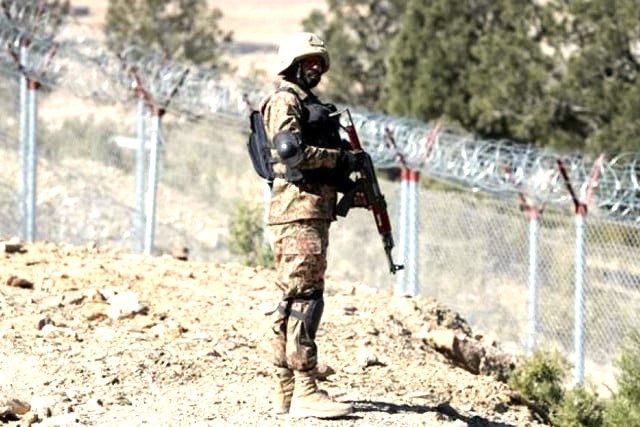The Pakistani government has raised these attacks with Afghanistan’s Taliban rulers, urging them to exert control over the militants operating from Afghan soil

ISLAMABAD: In a significant and troubling development along the Pakistan-Afghanistan border, Afghan Taliban forces launched an unprovoked and aggressive assault on Pakistani military posts. This confrontation, which began on September 7, 2024, marks one of the most serious instances of cross-border violence in recent times. The Afghan Taliban’s offensive began early in the morning when they initiated heavy weapon fire from the Afghan territory of Plosin, situated close to the border with Pakistan.
The assault, which continued unabated through September 8 and 9, involved substantial firepower, including artillery and mortars, targeting Pakistani checkposts. The Pakistani Army’s response was both swift and forceful. In retaliation, the Pakistani forces engaged in a heavy counteroffensive, using similar heavy weaponry to defend their positions and repel the Taliban’s assault. The confrontation resulted in significant casualties on the Taliban side, with 16 fighters confirmed dead and 27 wounded. Additionally, Pakistani forces managed to destroy two Taliban tanks during the engagement, underscoring the intensity of the clash.
The unprovoked nature of the attack and the scale of the response have had far-reaching implications. The Pakistani military has reiterated its stance that any form of aggression from across the border will be met with a robust and decisive counteraction. This incident adds to the growing tension between the two neighboring countries, which have struggled with cross-border insurgency and violence in recent years. The Pakistani government has raised these attacks with Afghanistan’s Taliban rulers, urging them to exert control over the militants operating from Afghan soil.
Pakistan has accused the Afghan Taliban of harboring and supporting extremist groups that use Afghanistan as a launchpad for attacks against Pakistan. This latest escalation underscores the need for enhanced security cooperation and dialogue between Islamabad and Kabul to prevent further violence and maintain regional stability. This clash is part of a broader pattern of intermittent violence along the Pakistan-Afghanistan border. Historical grievances, ethnic tensions, and political instability have fueled frequent skirmishes and attacks. Pakistan has long accused Afghanistan of not doing enough to curb militant activities within its borders, leading to periodic flare-ups of violence.
In response to such incidents, Pakistan has often called for stronger measures from Afghanistan to address the cross-border insurgency. However, these calls for action have frequently been met with limited success, leading to recurring tensions and confrontations. The recent attack further complicates an already strained relationship between the two countries and highlights the challenges of achieving lasting peace in the region.
#CrossBorderAttack, #AfghanTaliban, #PakistaniMilitary, #BorderConflict, #PlosinAssault, #MilitaryClash, #PakistanAfghanistan, #Terrorism, #RegionalStability, #SecurityCooperation, #TalibanViolence, #PakistanArmy, #AfghanistanRelations, #BorderViolence, #PeaceChallenges



